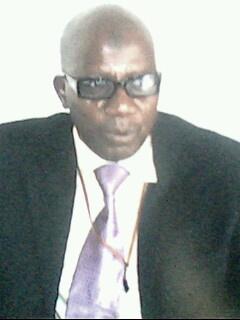
With the voting over between yesterday, February 25 and part of today, February 26, in Nigeria in the 2023 Presidential and National Assembly elections, one cannot resist the urge to take a look at the circumstances around one of the Presidential contestants, Peter Obi.
As a matter of fact, when Peter Obi first emerged from the pack and indicated his intention to contest the presidency under the Labour Party (LP), I was one of those who appreciated and hailed him, for one reason: his emergence from the particular part of the country was to me, a sweet antidote to stop the move by some elements to calve another country known as Biafran Republic from Nigeria.
My positive reaction to his emergence on this parameter was based on the fact that those agitating for Biafra, especially the Indigenous People of Biafra (IPoB) would have no reason to continue because, at least he (Peter Obi) had come to show that Igbo are part and parcel of Nigeria thereby foreclosing Biafran idea. .
I had written then that whatever his ambition might turn out to fetch him, whether success at polls or lack of it, Peter Obi would be regarded as the hero of the 2023 election, and the advancement of democracy.
I considered him as representing a unifying factor in the struggle between the agitating elements in Igbo land and the rest of us on this side.
 However, when he introduced series of visits to churches across the country, I began to fear the end to which such visits would lead the country, especially against the background of his alleged historical hatred for Muslims when he was Governor of Anambra State years back. He was accused of demolishing Mosques in the State, maybe at the time he never thought “tomorrow”would come when he would need the same Muslims.
However, when he introduced series of visits to churches across the country, I began to fear the end to which such visits would lead the country, especially against the background of his alleged historical hatred for Muslims when he was Governor of Anambra State years back. He was accused of demolishing Mosques in the State, maybe at the time he never thought “tomorrow”would come when he would need the same Muslims.
He never made attempt to douse the flame of such fear which many Muslims nursed.
Of course, as the campaign hotted up, youths in many parts of the country queued behind him, seeing in him, the freshness in the idea of moving the country to the next level. This was even as his Igbo people, not only in the Southeast but all over Nigeria: Lagos, Kano, Bauchi and others, vowed to give him block vote despite that he had no political structure anywhere.
But the resort to religious sentiment became a danger to the collective existence of the country.
In other words, there’s nothing dangerously wrong for Peter Obi to try to attract the support and sympathy of his ethnic group, after all, let’s face the fact, Rabiu Musa Kwankwaso of New Nigerian Peoples Party (NNPP) and some others before him did the same: there’s nothing wrong in appealing to the conscience of the overzealous youths as he did, neither to even the Labour (workers group) the same way it happens in the United Kingdom. But many things are dangerously wrong in fanning the embers of religion in any form.
The consequences of Peter Obi’s visits to churches started to manifest when most of the churches across the country were turned into open campaign for him.
In the beginning, it looked almost normal since he took his time to visit them and sought their support, and therefore they felt obliged to reciprocate, but it became worrisome when a few days before the election, pastors, reverends and other church leaders campaigned not just with words but also by threats and curses on any Christian who would not vote for Peter Obi.
In fact, one of the church leaders threatened to physically fight Christians that would not vote for the LP candidate.
The situation became so frightening in the Christian circle that Muslims have no choice to also resolve to vote for either Asiwaju Bola Tinubu of the All Progressives Congress (APC) or Atiku Abubakar of the People’s Democratic Party (PDP) or even Rabiu Kwankwaso of the NNPP, all being Muslims.
Imams and other leaders used their preachings and Sermons in Mosques at the Friday Jum’at prayer (a day to election) to openly call on Muslims to vote for Muslim Presidential candidates.
The end result, in spite of the initial positive idea which Peter Obi initially presented, has been the dangerous move, either inadvertently or knowing, to divide Nigeria along religious line.
He appeared to have given Nigeria a source for the attainment of unity along ethnic and regional lines, and took it back with the divisive tendency along religious line.
On Labour, it is obvious that the effectiveness and the representative status of Nigerian Labour movement, in the context of the 2023 elections, will subsequently be a subject of contention as we move out of the election period.
It is clear that the Nigerian Labour Congress (NLC) and other labour organizations are now politically inclined, either in power if the candidate they present win election, or opposition party, if power eludes the candidate.
Therefore, the labour unions will no longer have the muscle, as opposition, to fight the government for workers welfare.
The buildup to the campaigns and eventual voting yesterday, from the point of view of Peter Obi’s true political profile and what the labour organizations have turned into, remains hazy, with a lot of questions.






